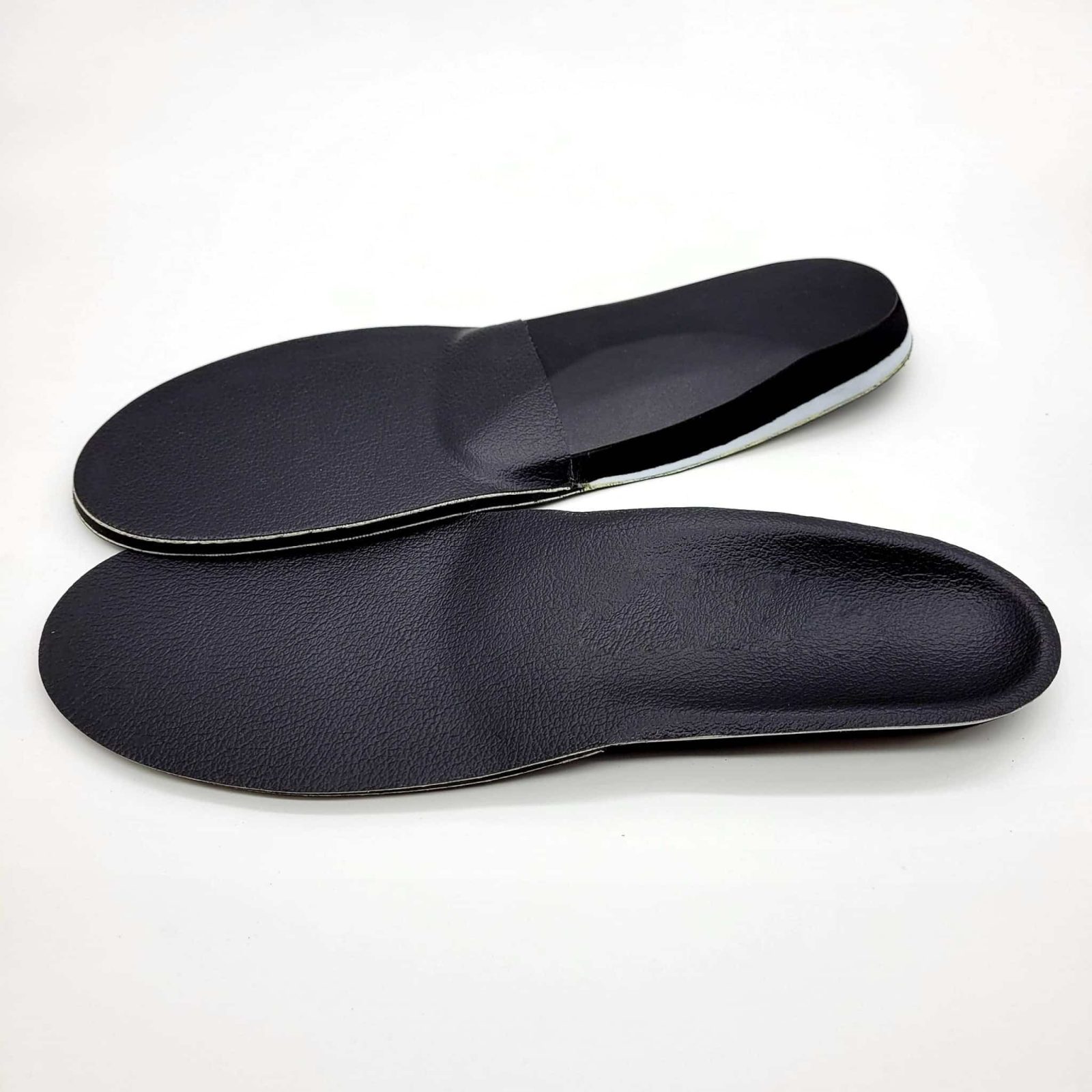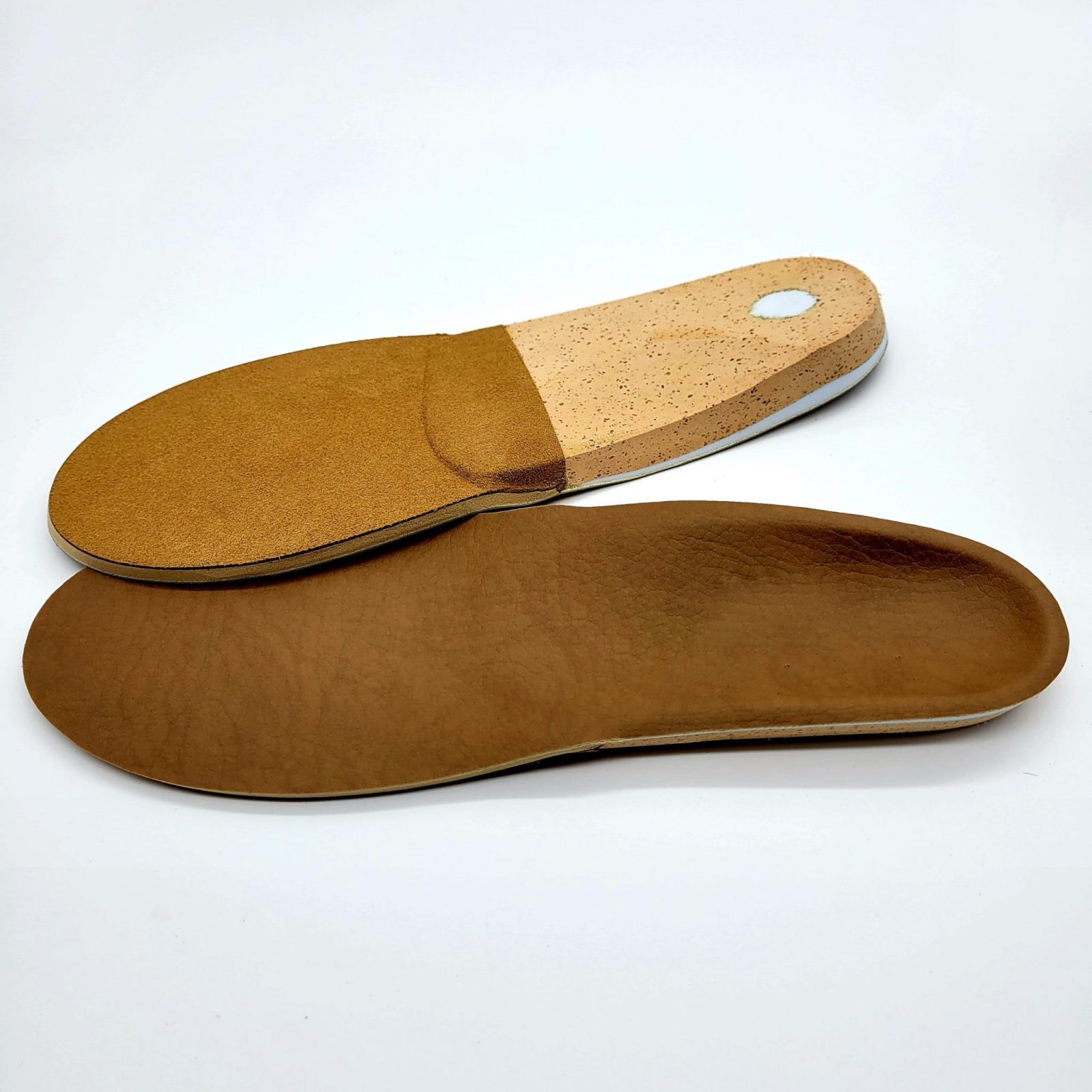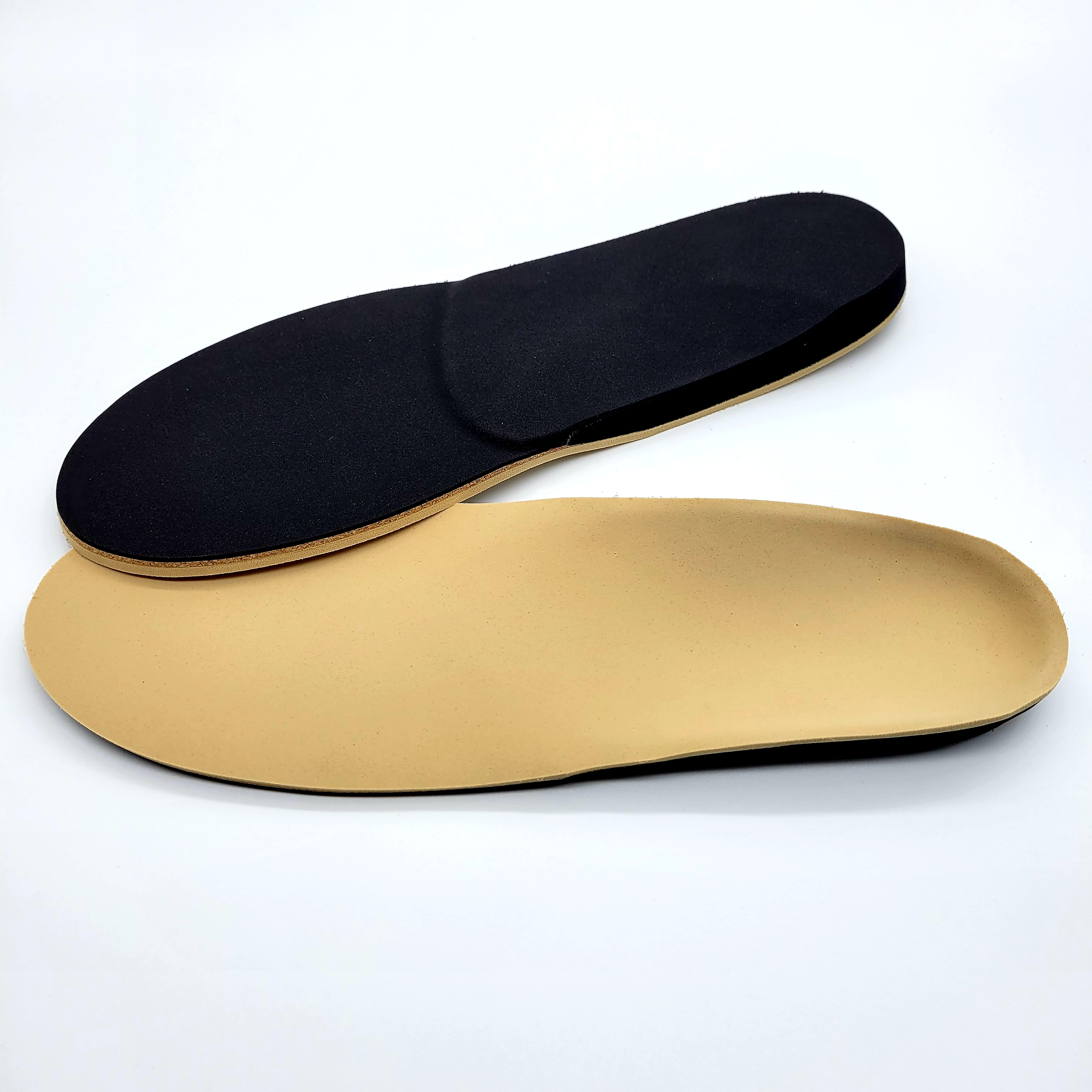Accomodative Orthotics
Poron Mold
Orthotic.
Vacuum-formed polypropylene shell style with poron fill; providing extra shock attenuation.
Molds offer the most lightweight and flexible orthotic support for patients who are deemed poor candidates for bio-mechanical control because of congenital malformations, restriction or lack of foot and leg motions. The Poron Mold is ideal for walking and everyday use.
Lab Standards
- Shell – Semi-flexible Polypropylene with Poron Fill
- Grind – Functional Shell Grind
- Post – Extrinsic
- Cover - Black Vinyl (Additions and Extensions optional)
Biomechanical Indications
– Diabetes
– Rheumatoid Arthritis
– Plantar Fasciitis
– Motion restricting bony blocks


Eva Mold
Orthotic.
Vacuum-formed EVA shell style providing extra shock attenuation and more flexibility than the Mold or Korex Mold.
The EVA Mold offers the least control with maximum accommodation and shock absorption. The thermo formed soft EVA shell provides extra shock attenuation and more flexibility than the Poron and Korex Molds as it has no polypropylene infused with the orthotic. Ideal for patients with foot sensitivities.
Lab Standards
- Shell – Semi-flexible EVA
- Grind – Functional Shell Grind
- Post – Extrinsic
- Cover – Black vinyl (Additions and Extensions optional)
– Diabetes
– Rheumatoid Arthritis
– Plantar Fasciitis
– Motion restricting bony blocks
Korex Mold
Orthotic.
Vacuum-formed polypropylene shell style with cork fill; providing more rigid shock attenuation than the Mold, offering more control.
The Korex Mold is constructed with Korex cork laminated to a thin thermo formed plastic shell in which the cork provides a little more ‘spring in the step’. Use for patients with diminished ranges of motion when greater accommodation and compression is required.
Lab Standards
- Shell – Semi-flexible Polypropylene with Korex (cork) Fill
- Grind – Functional Shell Grind
- Post – Extrinsic
- Cover – Cognac vinyl (Additions and Extensions optional)
Biomechanical Indications
– Diabetes
– Rheumatoid Arthritis
– Plantar Fasciitis
– Motion restricting bony blocks


Diabetic/Arthritic
Orthotic.
Vacuum-formed EVA shell. Designed to reduce mean peak pressures at the site of neuropathic ulceration. For patients with concerns for skin breakdown, arthritic changes in their feet, diabetic conditions, reducing shearing forces at the foot surfaces and those who need the added comfort from the self molding process of a Plastazote top cover.
Lab Standards
- Shell – EVA (Ethylene Vinyl Acetate)
- Grind – Functional Shell Grind
- Post – Extrinsic
- Cover – “1/8” Plastazote top cover. 1/16” cork extension. Full, heel to toe, 1.5mm Nyplex bottom cover.
Biomechanical Indications
– Diffuse callosities
– Insensate feet
– Metatarsalgia
– Pre-ulcerated sites
– Charcot foot
– Plantar fasciitis
– Morton’s neuralgia